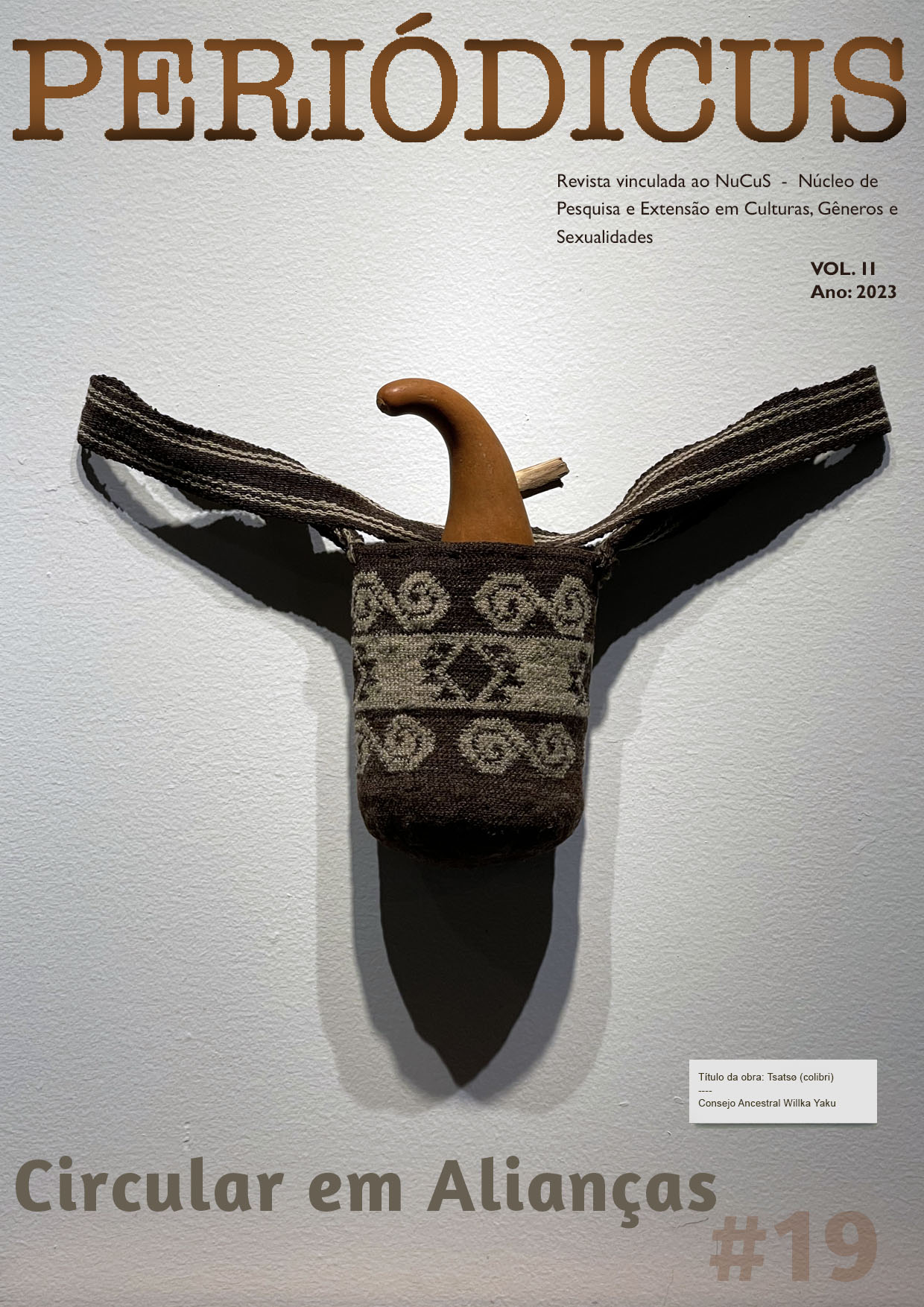The first act
the trans/writing of Camila Sosa Villada
DOI:
https://doi.org/10.9771/peri.v2i19.54785Abstract
The essay focuses on the interface between the issue of the feminine in literature and the feminine as an issue for literature. To deepen the relevant reflections to the subject, we appropriate the understanding of “feminine writing”, developed by Lucia Castello Branco (1991; 1994; 2019; among others), which points to a diction that is specific to certain literary texts, regardless of the gender of their authors. From this, and considering the pressing and current demand for new ways of experiencing the feminine, we turn to the works of Camila Sosa Villada, El viaje inútil: trans/escrituras (2018) and O parque das irmãs magníficas (2021b). We will underline, in this texts, the own diction, the presence of the feminine, and its meanings: beyond gender, we will analyze how, from the body and writing, “this other femininity” appears, in continuous creation and elaboration, as a supplementary feminine.
Downloads
Downloads
Published
How to Cite
Issue
Section
License
Copyright (c) 2023 Jonas Miguel Pires Samudio

This work is licensed under a Creative Commons Attribution-NonCommercial 4.0 International License.
Authors who publish in this journal agree to the following terms:
Authors retain copyright and grant the journal the right of first publication, with the work simultaneously licensed under a Creative Commons Attribution Noncommercial License that allows the work to be shared with acknowledgment of authorship and initial publication in this journal, but prohibits commercial use.
Authors are authorized to enter into separate additional contracts for non-exclusive distribution of the version of the work published in this journal (e.g., publishing in an institutional repository or as a book chapter), with acknowledgment of authorship and initial publication in this journal.
Authors are permitted and encouraged to publish and distribute their work online (e.g., in institutional repositories or on their personal website) at any point before or during the editorial process, as this can generate productive changes and increase the impact and citation of the published work (see The Effect of Open Access).








